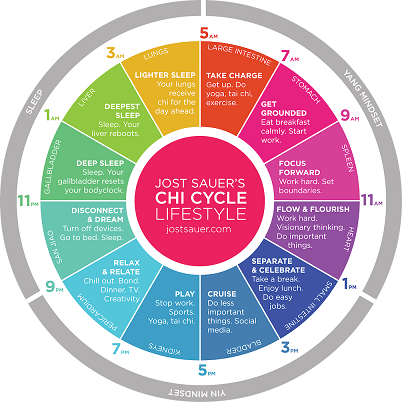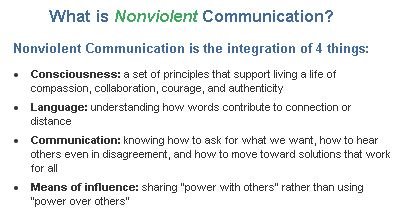Conscious Communication + Conscious Relationships
Hello, hello, beautiful being. I hope today is bringing you peace and joy, but if not, please accept the love and light I'm sending you right now!
Today I want to talk to you all about having a "conscious" relationship, and what that means to me. I also want to give you some tips and advice on ways to improve your communication throughout your relationships, and thus bring more consciousness to them.

Photo Source
You see, something I have noticed over the years, is that the downfall of all of my relationships has been due to poor communication skills.
In my romantic life, in my family life, and in relationships with friends and colleagues too, this lack of conscious communication has resulted in arguments, screams, tears, confusion, misunderstandings, and even break-ups. And I know I'm not alone in this.All around me I see friends and loved ones who are struggling to fully express themselves in their relationships. Struggling to fully explain how they feel, struggling to feel understood, struggling to ask the right questions ... or maybe not even knowing how they feel to express it in the first place.
Too many couples are arguing far too often, and I have seen small arguments turn into big, blown up fights. Too many parents aren't able to express themselves to their children, and vise versa. Especially with the increase in technology these days, young children are not learning the appropriate skills to express themselves. Too many of us are lost in our screens of phones, computers, and tablets and are disconnected from the actual humans all around us.
For me, I often retreat to my journal when something is bothering me, when I'm upset, or when I need to de-stress and deal with a problem. I tend to go into my room, get out my journal, and just let it all flow out. I find this to be a sort of cathartic release, and I am usually able to work through my anger and frustration or sadness in this way and move through to better feelings. This is how I've avoided many fights with friends, parents, and lovers throughout my life… by dealing with it on my own. But recently I have realized that this is not the best method for dealing with my problems. Because what it results in, is me avoiding to talk to the other person about the conflict. I end up working through it on my side, but the other person is never made aware of how I felt, or what caused me to feel upset, and they were never able to express their feelings either. So, even though I was working through things and avoiding conflict in the moment, the problems then keep rising and coming up more and more, because we never took the time to actually discuss the situation and work through it TOGETHER.
I see this lack of communication everywhere. This is something we all need to work on. Even with all the work I've been doing to actively improve and work on communication, I still see areas where more work needs to be done. I think this is one of those skills in life that you can never stop improving on, and working on improving it will never stop being helpful and beneficial.

So, what are some ways to improve your communication skills?

Photo Source
1. Patience
The first piece of advice I have, is to have patience. Patience with yourself, and patience with every person you come into contact with.
Patience really is the key to staying calm, staying centered, and staying clear-headed. It helps to deal and get through every situation you can think of. Especially when dealing with a conflict, it can help you stay in control of your emotions and not let anger or frustration take over and lead the conversation. Plus, when you exhibit patience, it helps the people around you have patience as well. So when it comes to having a difficult or important conversation with someone, patience is key, key, KEY to understanding those around you, and to being understood yourself.
2. Creating a safe space
It is very important to create a safe container to have your conversations in, especially the difficult conversations. In order for all those involved to be able to fully express themselves, and to be fully understood, it is necessary that everyone feels safe and comfortable. In order to gain the most understanding, and make the most progress, you cannot put your blame or shame or anger onto the person you are speaking with.
Before beginning a heated conversation, take the time to say, “This is a safe space for each of us to express ourselves fully, and a chance to be fully heard and received.” (This would also be a great time to discuss what the goal or intention of the talk is, but I will say more about this is number 3)
I have a few suggestions on how to create a safe space:
It may help to light a candle or an incense in the room before starting an intense conversation, to help lighten the mood and create more comfort for those involved.
It is also important to let each person in the discussion have his or her turn to speak fully, without being interrupted. Thus, actively listening is crucial. In order to get to a place of understanding so that you can move forward, each person involved needs to actively listen, and then respond accordingly at the appropriate time (no interrupting). This allows each person to feel truly heard and to be able to get out all that needs to be said.
When you move and speak and listen from a place of calmness and a place that feels safe, you will be able to speak and think and react more clearly and efficiently, and once again, avoid letting your emotions take over.
3. Setting an intention
When you embark on having an intense or difficult discussion, it is very important to openly state clear intentions for your conversation.
When you begin a difficult conversation by stating the goal or the intention of the talk, it will help all those involved in the talk to know what the purpose and the goal of the talk is, and will help everyone stay focused. Plus, it helps to make sure that everyone is on the same page, and has a better understanding of what the conversation is for.
For example, maybe the purpose of your talk is to gain clarity on a certain situation. Or maybe it is to deepen your connection and and understanding to one another. Maybe you are speaking to your colleagues/employees about how things are running, and the purpose of the talk is to reflect on the previous week and create a better plan for the week ahead. Maybe the purpose and intention is to apologize for something, and to discuss ways to avoid future conflict.
Whatever it is you want to talk about, it is so important to get clear on your goals and intentions FIRST. Otherwise, without a clear idea of where you want to get to, it will be very easy to get lost in a heated conversation, and very easy to let your emotions take control and lead you into places that are not helpful. Plus, by identifying your intention beforehand, it will help you decide what questions and main points need to be addressed before diving in.
Which leads me to my next point….
4. Asking the right questions.
When you identify your goal and intention first, it will help you determine what important questions and concepts need to be answered and addressed. It will give you time to identify what it is you want to know, what it is you want to say, and what it is you need clarity on.
To avoid unnecessary conflict, confusion, and fighting, take the time to get clear on what you want to express, and to prepare some questions beforehand that will help you gain understanding and get closer to realizing your intention.
There is also an art to asking questions in the right way, with the right tone of voice and without blame. I will talk about that more below, in point number 6 (non-violent communication)
6. Choose the right TIME… No big talks late at night
The last point I want to address here is timing. There are good times to have these intense, powerful conversations, and there are also bad times. The worst time to have an intense conversation, or to make big decisions, is in the middle of the afternoon after working all day (for most people this is between 15.00 and 17.00), or late at night when you are beginning to settle down for the night. If you are tired, DO NOT embark on a heavy conversation or attempt to make big decisions. And if someone tries to engage in an intense conversation at this time, kindly explain that you are very tired and it is not a good time to talk, but plan a better time to talk.
For most people, our bodies follow a sort of schedule called the Chi Clock. The Chi Clock explains when the best time is to do certain things. It describes the best way to schedule your day to create the most efficiency and success.
Our minds are most powerful and most clear early in the day, but during the evening our processing and decision making abilities are limited. When you try to have heavy conversations in the evening, or in the middle of the afternoon in the midst of a heavy workday, you are much more likely to get into an argument or make irrational decisions that you may regret later. It is harder to express yourself, harder to understand, and harder to make (good) decisions.
So don’t do it! Don’t have intense talks at night. Avoid unnecessary arguments by saving these talks for the morning or the early afternoons or after a nap when you feel refreshed and rejuvenated.

Photo Source
6. Non-violent Communication skills
”Nonviolent Communication (NVC) has been described as a language of compassion, as a tool for positive social change. NVC gives us the tools to understand what triggers us, to take responsibility for our reactions, and to deepen our connection with ourselves and others, thereby transforming our habitual responses to life. Ultimately, it involves a radical change in how we think about life and meaning.”
--Inbal and Miki Kashtan (https://www.wanttoknow.info/inspiration/nonviolent_communication_summary_nvc)

Photo Source
NVC is based on one fundamental principle: That behind all human actions there is a need that wants to be met. When we change our thinking and communication patterns to focus on our needs… without conveying blame or criticism… we are able to identify solutions that we were previously unable to see. At this “feeling” and “needs-based” level, conflicts can be resolved with much greater ease.
”Understanding and acknowledging these needs can create a shared basis for connection, cooperation, and more harmonious relationships on both a personal and global level. Understanding each other at the level of our needs creates this possibility because, on the deeper levels, the similarities between us outweigh the differences, giving rise to greater compassion.”
--Inbal and Miki Kashtan
Nonviolent Communication has two parts: Honestly expressing yourself to others, and emphatically listening to others. There are 4 components to NVC: observations, feelings, needs, and requests.
I won’t go too much into detail about each of these components, because that could be an entire blog post on it’s own, but I do highly encourage you to check out this site where NVC is very well described and summarized.
The main thing I want to focus on here, is that when you are engaging in a tough or intense conversation, to avoid blame, and to instead make your goal be to better understand and express your own needs. When voicing your observations, feelings, needs, and requests (not demands), avoid telling the person what he or she did, or didn’t do, and instead focus on your INTERNAL feeling state.
”For example: "I feel lonely" describes an inner experience, while "I feel like you don't love me" describes an interpretation of how the other person may be feeling. When we express our feelings, we continue the process of taking responsibility for our experience, which helps others hear what's important to us with less likelihood of hearing criticism or blame of themselves. This increases the likelihood that they will respond in a way that meets both our needs.”
--Inbal and Miki Kashtan
Check out the the link above to learn more about this valuable skill.

So there you have it. Those are my 6 tips on how to create more clear, conscious communication in your life to assist with building deeper relationships. I have been practicing these skills for about a year now and have experienced so much growth already. Conscious communication is a skill that we must continually work on to improve, and there is no “end” to this process. But following these tips will help you become a better listener, a better communicator, and will assist you in deepening your connection and understanding to all those around you.

Photo Source
Thank you so much for taking the time to checkout my blog. I greatly appreciate your support! If you enjoyed this post, I would love your UPVOTE and for you to follow me here on steemit @rainbowrachel 🌟 🌟
Until next time. I love you….
🌈 Rachel


Feel free to follow me on Facebook and Instagram by clicking the images below!
I appreciate all your support. 💙 💙

I am a proud member of @tribesteemup, a beautiful community of people working together to help make the world a more peaceful, positive, free place. Among us are healers, free-thinkers, teachers, and high-vibe people who are creating great content to help make the world more positive and better for us all. Please stop by the page to check out the group and support the work being created. 💗

I’m also a proud passenger on the @ecotrain
Check out the hashtag #ecotrain for more high-quality, high-vibe articles from people working to bring more positivity and forward movement to the world.
Supporting People Who Help
Make The World A Better Place



Promo-Mentors Discord Link

#communication #consciouscommunication #nvc #consciousrelationships #health #inspiration #wellness #ecotrain #tribesteemup


And sometimes we just need to accept the fact that no matter how good the communicating may be, the other person is simply not the right one for us, and to release them.
Yes, this is very true. But in addition to romantic relationships, this advice is also for people you may not get to choose in your life; like colleagues, employers, and family members. We can't just kick those people out of our lives, so continuing to work on clearer, more conscious, empathetic communication can really help those relationships grow.
It is the most courageous feat to release the people who foster negativity that we do not have the energy to maintain in our life. No matter how much love is in the equation, we alone must chose who builds us up, and those who will provide comfort zones with their indifference to our opinions. I enjoyed reading your conscious listening techniques, setting the safe environment and the chi chart for the appropriate times for suggested kinds of conversations is quite compelling. I hope it leads you to being able to do all you prepare for on the fly. Because I believe adventure and conversation happens whenever it wants to.
Sell your vote: https://steemit.com/news/@bible.com/6h36cq
To listen to the audio version of this article click on the play image.

Brought to you by @tts. If you find it useful please consider upvoting this reply.
Thanks Communication is always key. Thanks also for adding the non agressive part.
Yep, it's something I need to work on myself... especially when having conversations with my mom....it's so easy to lose my temper and become unnecessarily aggressive in certain situations. But it never helps, and it is so important to be aware of. I'm learning lots for NVC.
Thanks for reading and commenting!
This post has been upvoted and picked by Daily Picked #48! Thank you for the cool and quality content. Keep going!
Don’t forget I’m not a robot. I explore, read, upvote and share manually 😊
You can upvote, follow, resteem, delegate and join my curation trail to support me, good creators and minnows.
Thank you!
Thank you very much! I really appreciate that! xx
I recognize a lot in your post in my own relationship. We had struggles in our past, communication wasn't my strongest side. I did see a psychologist for that. She helped me a lot by learning to listen and to separate important from unimportant facts... That made it more easy to communicatie about the real things that matter without getting in a argue..
Communication is so hard for so many of us. I don't think that most of us learn proper communication skills (clear communication and active/emphatic listening) when we are younger. It just doesn't seem to be the "norm" yet. But I hope we can all start changing that...by learning these techniques ourselves, and by sharing them/passing them along to friends, family members and our future children/grandchildren. Happy to hear you received from help in your past. These are such important skills for us to have in any relationship...even our relationship with ourselves!
I have learned so much from NVC in terms of how to identify my feelings and needs rather than assigning blame to others...because in the end, we are all responsible for our own emotions, and we cannot point the finger at anyone else. We must seek to understand, rather than to "know" or "be right".
Thanks for taking the time read and leave a heartfelt comment 🙏